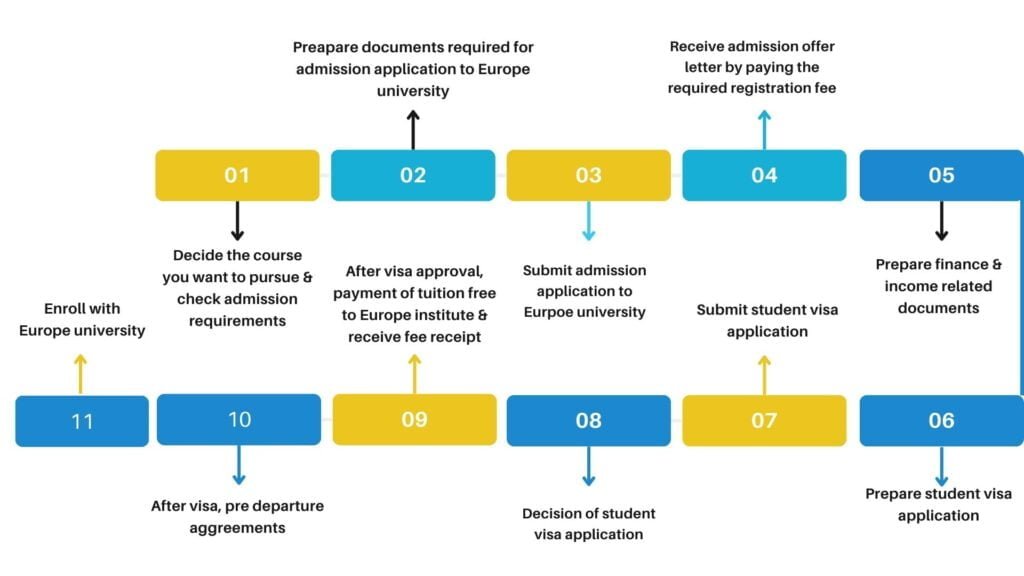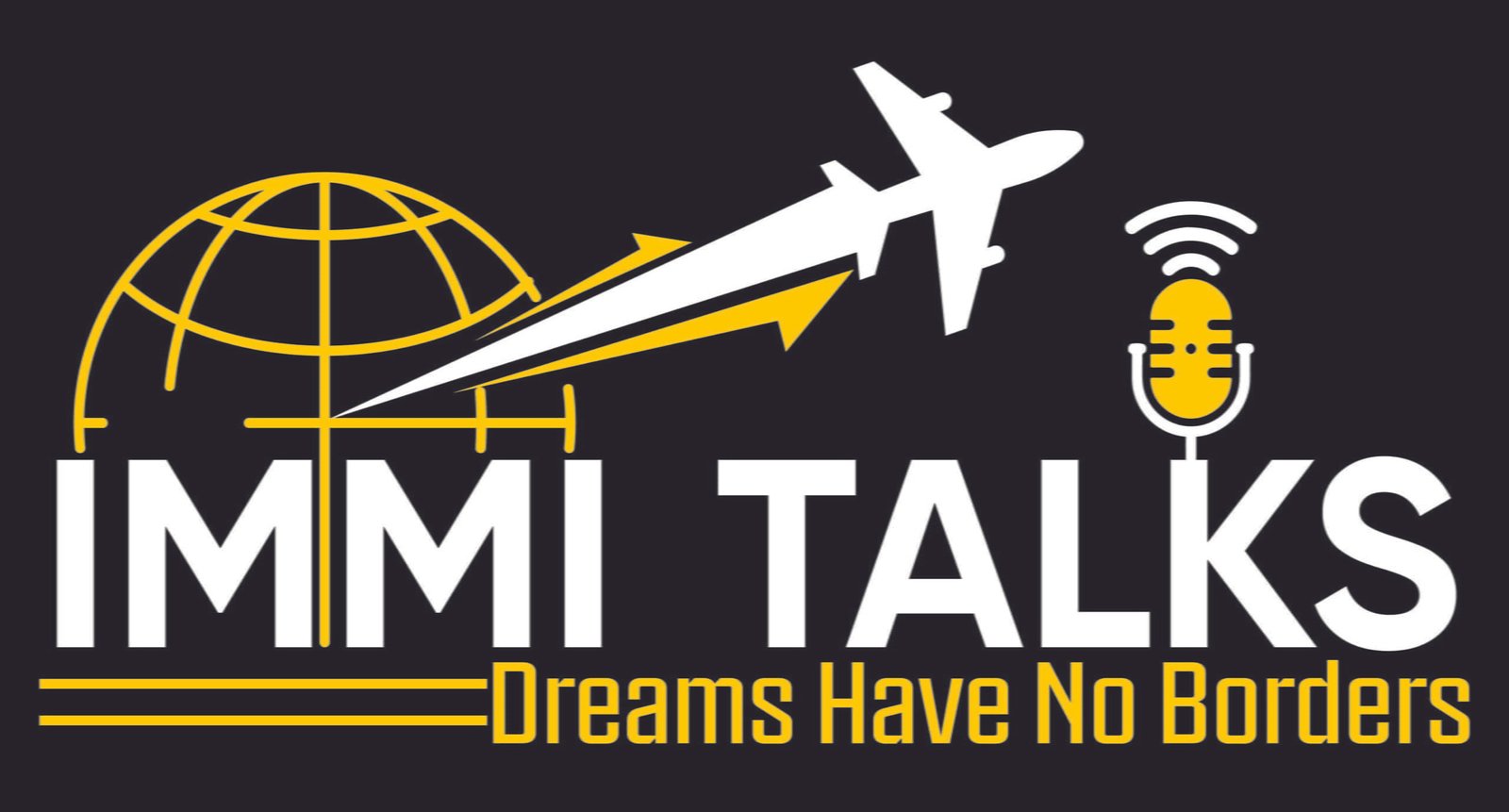
Study in Europe
Europe’s allure for studies, work, and settlement stems from several key factors.The European Union (EU) presents a compelling destination for study, work, and settlement, offering diverse opportunities and a high quality of life. List of Countries which are part of European Union:

Countries in Europe
- Austria
- Belgium
- Bulgaria
- Croatia
- Cyprus
- Czech Republic
- Denmark
- Estonia
- Finland
- France
- Germany
- Greece
- Hungary
- Ireland
- Italy
- Latvia
- Lithuania
- Luxembourg
- Malta
- Netherlands
- Poland
- Portugal
- Romania
- Slovakia
- Slovenia
- Spain
- Sweden
Europe
Please note that the status of countries with respect to the European Union can change over time due to various factors
Europe
Why Immigrants Prefer European Countries:
- Education: Renowned universities, diverse courses, and a multicultural academic environment.
- Work: Strong economies, varied job prospects, and worker protections.
- Settlement: Quality of life, cultural diversity, and pathways to residency/citizenship.
Education:
The EU hosts a wide array of world-renowned universities and institutions offering diverse courses across various disciplines.
Intakes:
European universities typically have two main intakes:
- Fall (September/October)
- Spring (February/March). However, this can vary by institution and program.
Enjoy The Best Experience With Us
Most In-Demand Courses:
- Engineering: Various specializations like mechanical, civil, electrical, and software engineering are popular due to Europe’s strong industrial base and technological advancements.
- Business and Management: Programs in business administration, international management, finance, and entrepreneurship are highly sought after for their relevance in a global business context.
- Computer Science and IT: Given the digital revolution, courses in computer science, cybersecurity, artificial intelligence, and information technology remain in high demand.
- Healthcare and Medicine: Medicine, nursing, public health, and pharmaceutical sciences attract international students due to Europe’s high-quality healthcare systems and research opportunities.
- Environmental Sciences: With a focus on sustainability and climate change, programs in environmental engineering, renewable energy, and environmental policy draw significant interest.
- International Relations and Political Science: Given Europe’s diverse political landscape, courses related to international relations, diplomacy, and political science are popular choices.
- Tourism and Hospitality: Programs focusing on tourism management, hospitality, and event management capitalize on Europe’s tourism industry and cultural diversity.
- Health Care System
Book A Free Consultation
Top Universities:
- ETH Zurich in Switzerland
- University of Copenhagen in Denmark
- University of Amsterdam in the Netherlands
- Sorbonne University in France, and many more
Total Expenses:
Overall Expenditure for International Students:
The overall expenditure for international students in the EU can vary significantly based on factors like country, university, course, and lifestyle. On average, tuition fees can range from around €3,000 to €20,000 per year for undergraduate programs, and higher for some specialized programs or postgraduate degrees. Additionally, living expenses can vary from approximately €10,000 to €15,000 per year, depending on the location and lifestyle.
It’s crucial to research specific universities, programs, and countries of interest to obtain accurate and detailed information regarding intakes, popular courses, university rankings, and the overall cost of education for international students in Europe. So, for more accurate information, talk to our experts.
Scholarships:
-Erasmus Mundus Joint Master Degrees: Offered by the European Commission, these scholarships support high-quality international master’s programs.
-DAAD Scholarships: Provided by the German Academic Exchange Service, these scholarships support various study levels and fields for international students in Germany.
-Swedish Institute Scholarships: For students pursuing master’s programs in Sweden, these scholarships cover tuition fees and living expenses.
-Eiffel Excellence Scholarship Program (France): Offered by the French Ministry for Europe and Foreign Affairs, this scholarship supports international students at the master’s and PhD levels.
-Amsterdam Merit Scholarships (Netherlands): Offered by the University of Amsterdam, these scholarships are for exceptional non-EU students pursuing a master’s degree.
-VLIR-UOS Training and Master’s Scholarships (Belgium): Targeting students from selected countries in Africa, Asia, and Latin America, these scholarships cover study programs in Belgium.
-The Finnish Government Scholarship Pool: Available for Doctoral level studies and research in Finnish universities.
Europe
A great way to experience the Europe lifestyle

Working Rights:
In the European Union, working rights for international students during their studies and after completing their studies can vary among countries. Here’s a general overview:
During Studies:
- Part-time Work: Many EU countries allow international students to work part-time (usually around 20 hours per week) during their studies.
Restrictions: Some countries might impose restrictions on the type of work or the number of hours students can work while studying.
Internships: Often, students can also undertake internships or work placements related to their field of study.
- After Studies:
Post-Study Work Opportunities: Some EU countries offer post-graduation work opportunities or specific visas allowing graduates to stay and work for a certain period after completing their studies.
Job Search Visa: In some cases, graduates might receive a temporary permit or extension to seek employment after finishing their studies.
Permanent Residence: Successful employment might lead to opportunities for permanent residence or longer-term work visas.
It is important to research and understand the specific regulations and policies of the country where you plan to study as these regulations can vary significantly.
Enjoy The Best Experience with Us
PR Programs
- Investment-Based Residency Programs:
- Portugal’s Golden Visa: This program grants residency to investors who make a significant financial investment in Portugal, such as real estate or creating jobs.
- Cyprus Investment Program: Similar to Portugal’s Golden Visa, Cyprus offers residency to individuals making substantial investments in the country.
- Work-Based Residency:
- Germany’s Permanent Residency: Graduates and skilled workers in Germany may apply for permanent residency after meeting certain criteria, like language proficiency and employment.
- Netherlands’ Highly Skilled Migrant Program: Skilled workers in the Netherlands can obtain permanent residency after a certain period of legal residence.
- Long-Term Residency:
- Spain’s Long-Term Residence: Foreigners who have lived in Spain for five continuous years can apply for long-term residency.
- Italy’s Elective Residence Visa: Allows foreigners with sufficient financial resources to live in Italy without engaging in employment or business activities.
These programs often have specific requirements related to investment, employment, duration of stay, language proficiency, and integration into the country’s society. Each country’s regulations and prerequisites for obtaining permanent residency can differ significantly, so it’s essential to thoroughly research and understand the specific requirements of the country where you intend to apply for permanent residency.


